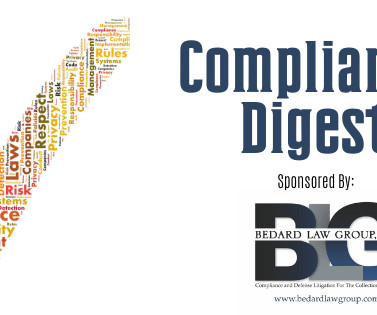Compliance Digest – February 18
Account Recovery
FEBRUARY 18, 2025
Merchant of the District Court for the Eastern District of New York issued the ruling, determining that the plaintiff failed to establish sufficient connections between the law firm and the state of New York to justify her authority over the defendant. Translation: to CYA, you need better original creditor contracts.]


















Let's personalize your content